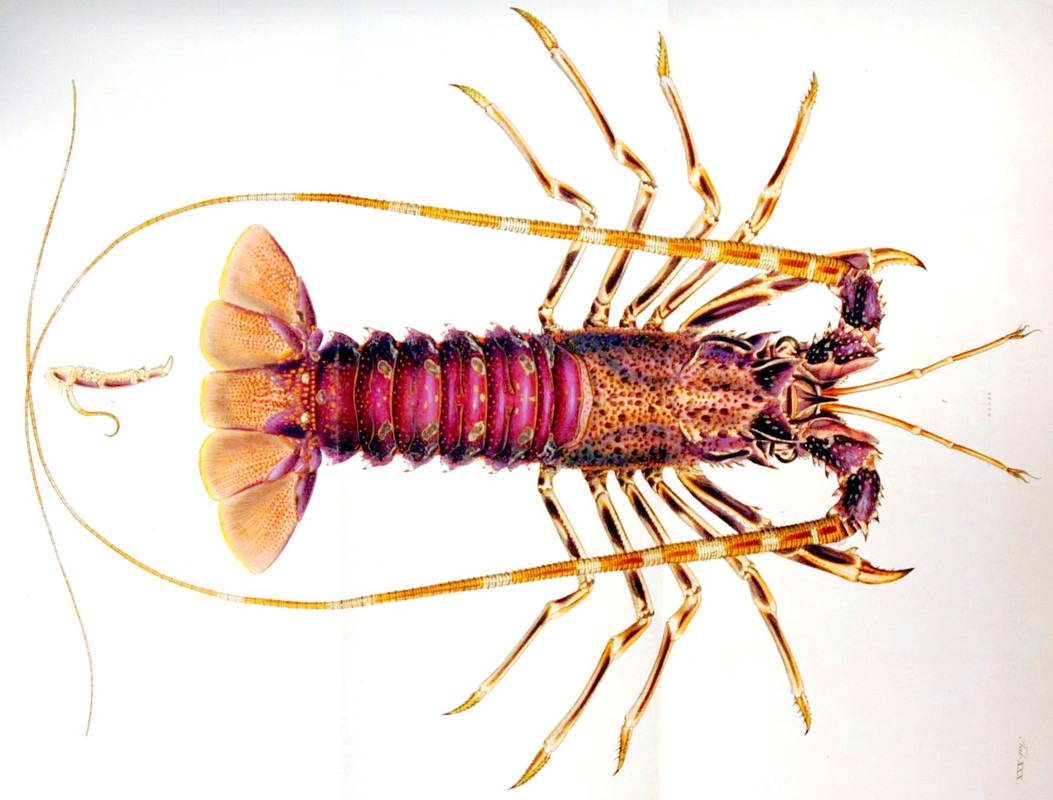|
The Breadcrumbs widget will appear here on the published site.
Conversations with Lobster TanksBy Christine Stoddard QuailBellMagazine.com Your prison is a 60” x 26” x 50” cavity of marine plastic infamous for the shock it produces in any shellfish who gazes upon its cruel and hideous glory. You are one such shellfish, a once innocent lobster turned nihilist. Since coming to this tank of death, you have seen the platters of red corpses whiz by you on shaky waiters' hands. You've watched the movie “Splash.” Someone will crunch into your shell with utter disregard for table manners and, more importantly, your soul. Children tap their greasy fingertips on the wall that separates you from the pale, hairless primates who feast upon the claws of your brothers and sisters. Damn their alveolar bones. Damn their braces. Their lips, too. Lobsters don't have lips—why do they? And they call your kind the funny looking ones. This might be the beginning of the conversation you would have with a lobster if a lobster could process and analyze the world just as you do. But if Google is at all representative of truth, the words “lobster thoughts” have far more to do with how and where to eat lobster than what lobsters think about anything. Yet if Hans Christian Andersen (or any fairy tale author for that matter) were God of all creation, you could communicate with a lobster the same way you do your neighbor. You could greet a lobster and expect a cordial response. You could proceed to ask the lobster about his day and he would delight you with tales of mermaids and deep-sea exploration. He might occasionally bore you with updates on the wife and kids, but you'd politely oblige him. You have wallet photos of your own. Once you were better acquainted, you might ask him about his unique opinions and experiences as a lobster. Is it true that lobsters become stronger and more fertile with age? What is really the kindest way to kill a lobster? Your conversations might evolve into a discreet cultural study turned exposé, akin to John Howard Griffin's Black Like Me. At some point, you might even slip into a lobster suit and hide in a pile of underwater rocks for a few days. You'd be happy as a clam until you actually met a mirthful mollusk and realized you hadn't an inkling of what happiness ever meant. In the ever arable land of a fairy tale author's mind, you might become best friends with the lobster. You might even become lovers. You might marry a lobster, if it were legal. Maybe your very purpose in life would be to champion lobster rights (and bestiality, as far as human-crustacean relationships are concerned.) You could be the Che or Martin Luther King or Joan of Arc of lobsters. The lobster whisperer. But fairy tale authors do not rule the universe, and lobsters are smelly scavengers at best and inelegant cannibals at worst. Put down your revolutionary cap; your destiny is probably far more mundane than mentioned a paragraph ago. You may not marry a lobster. You may only tap on the glass of a lobster tank like an irritable but curious child and mouth your message before the hostess comes to seat you. Just don't blame Hans. CommentsComments are closed.
|
|








